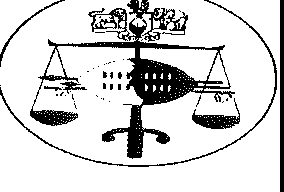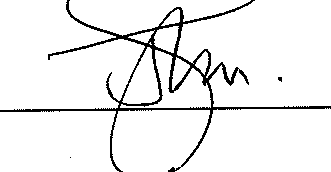
IN THE HIGH COURT OF ESWATINI
JUDGMENT ON SENTENCE
HELD AT MBABANE
In the matter between:
CASE NO. 171/17
THE KING
vs
QING MING HE
Neutral Citation: The King v. Qing Ming He ( 171/ 17) [2021 SZHC
I 66(28th September 2021)
CORAM DATE HEARD DELIVERED
J.S MAGAGULA J
4TH AUGUST 2021
28th SEPTEMBER 2021
The accused person has been found guilty of the following eleven offences ;-
1 count 1 Kidnapping.
count 2 Murder.
count 3 Attempted extortion.
count 4 Unlawful possession of a firearm.
count 5 Unlawful possession of ammunition.
count 6 Unlawful possession of a firearm.
count 7 Unlawful possession of ammunition.
count 8 Unlawful possession of 7.5mm ammunition .
count 9 Unlawful possession of 7.5 mm magazine.
count 10 Theft.
count 12 Contravening section 11 (1) read together with section 2 of the Passport Act 1971.
EXTENUATING CIRCUMSTANCES
One of the offences for which the accused has been convicted is murder. Before embarking on sentencing for this offence, the court is required to inquire into the existence or non - existence of extenuating circumstances. A definition for extenuating circumstances was laid down by Holmes JA in the South African case of R V Letsolo 1970 (3) SA 47 6 where the judge of appeal stated;
" Extenuating circumstances have more than once been defined by this court as any facts bearing on the commission of the crime which reduce the moral blameworthiness of the accused as district from his legal culpability. In this regard the trial court has to consider:
Whether there are any facts which might be relevant to extenuation such as maturity, intoxication or provocation (the list is not exhaustive).
Whether such facts, on their cumulative effect probably had a bearing on the accused's state of mind in doing what he did.
Whether such bearing was sufficiently appreciable to abate the moral blameworthiness of the accused in doing what he did
In deciding (c) the trial court exercises a moral judgment. If the answer is yes, it expresses its opinion that there are extenuating circumstances".
In this matter the court conducted an inquiry into the existence or no-existence of extenuating circumstances. Counsel from both sides were requested by the court to make representations in this regard and they both filed written submissions for consideration by the court. Miss
3
Ndlangamandla who appeared fo1· the accused submitted that the court should consider that the accused acted together with others in committing the offence and the degree of his involvement is therefore not known. The court had however already found in its convicting judgment that the accused was the mastermind in planning and execution of the offence. This finding was based on the evidence presented before court and its analysis by the court. The court had therefore made a finding on the degree of participation of the accused in the commission of the offence. Miss Ndlangamandla also submitted that the accused was 44 years of age when he committed the offence. The court considered that the accused was therefore fully matured when he committed the offence.
It was submitted by the prosecution that, to the contrary, there are aggravating factors in this matter. It was submitted that the accused carefully planned and premeditated his cause of action and it was carried out solely for purposes of financial gain. It involved the bringing in of foreign nationals to assist in the execution of the accused's plan. The accused persistently denied any involvement in the offence despite overwhelming evidence implicating him. There is no suggestion that the accused was influenced by any external element such as intoxication or provocation into commission of the offence.
[SJ I am in total agreement with the submissions by the c1-own and for that reason it is a finding of this court that;
5.1 There are no extenuating circumstances in this case.
SENTENCE
[6]] The court now has to determine and mete out the appropriate sentence in respect of each of the offences. In considering the appropriate sentence to be imposed I am guided by the triad being the nature and gravity of each offence, the interest of the community as well as the circumstances of the accused person.
Save for the offences of theft, and contravention of the Passport Act, all the other offences for which the accused is charged are very serious in nature. The offence committed under count No. I, kidnapping can be very traumatizing to the victim who, in this case, was an elderly man with a chronic illness, diabetes, Judging from the scene of the crime he was obviously violently seized from his business premises in Matsapha by armed people. There can be no doubt that this was an extremely traumatizing experience. The scene suggests that he did offer some resistance but was obviously over powered and bundled into the boot of a car and whisked away.
On the second count of mu1-de1-, there can be no doubt that his offence is at the top of the list of the most serious offences. The sanctity of human life cannot be over emphasized. Any person who takes away the life of another for no justifiable reason does not himself deserve to live and ought to be removed from society and preferably permanently so. In casu the motive for killing the deceased seems to have been nothing other than f-greed as Mr. Leppan submitted. The accused wanted to siphon some ESMillion from the deceased and when accused and his friends could not achieve this goal they then decided to kill the deceased. I agree with Mr Leppan's submission that any sentence less than life imprisonment of the accused would be a failure of justice.
On the offence of Attempted Extortion charged under count No.3 I observe that this is another very serious offence. The demand of a ransom of ESMillion for the release of her husband must have been a devastating experience on Mrs Oliveria who is herself evidently advanced in years.
[ I OJ Under counts 4 and 6 the accused has been convicted of unlawful possession of firearms in contravention of Section I I
as read with Section I I (8) (a) (c) (i) and 14 (2) of the Arms and Ammunitions, Act, 1964 as amended. These offences carry a minimum sentence of five years in terms of section 14 (2) of
the same Act. This in itself demonstt"ates the seriousness of these offences.
[ I I] Under counts 5, 7 and 8, the accused is charged with unlawful possession of ammunition in contravening of section I I(8)( c)
(ii) of the Arms and Ammunitions Act, 1964 as amended. The sentence for such offences is prescribed by the same Act. Possession of Ammunition is linked to the possession of a firearm for that Ammunition. It is therefore an equally serious offence.
[12] Under count 9 the accused has been convicted of possession of a Magazine of a 7.65mm pistol without a licence or permit in contravening of section I I (8) (b) ( c) (i) as read with section 14
(2) of the Arms and Ammunitions Act, 1964. The sentence of this offence is also prescribed in the Act.
[ 13] In count IO the accused was convicted with the offence of theft of a number plate of a motor vehicle. This offence is quite minor.
[14] On count 12 the accused was convicted of contravening section I I (I) read together with section 2 of the Passport Act of 1971. This is a minor offence.
[ ISJ As regards the interests of society it can be said without any doubt that all the right thinking members of our society frown upon the commission of any crime. However some crimes are easily forgiven or taken lightly by society. These are the minor
offences particularly those for which a person has a 1-eason fo1- committing such as the theft of a loaf of bread by a hungry person. On the other hand there are those serious offences which even if the convict can have some form of explanation for committing same society will not easily or readily forgive their commission if they will be forgiven at all. The offences committed by the accused in counts I to 3 herein are examples of such offences. The offences relating to possession of firearms and ammunition are also viewed in a serious light since those weapons are often used to take away the lives of other people.
[16] Regarding the interests of the accused there is nothing much that can be said in his favour. The accused person was at the time he committed the offences a mature man in his 40's. He was quite a sophisticated man running businesses. Through out the period from his time of arrest to completion of trial he has not shown any sign of remorse. I note however that he has no record of previous convictions in this country. He has pleaded guilty to some of the possession of firearms and ammunition charges.
[ 17] Having taken all the above circumstances into account the accused is sentenced as follows;-
Count I ( Kidnapping) - Five (5) years imprisonment without the option of a fine.
Count 2 (Mu1-der) - imp1-isonment for life.
Count 3 ( Attempted Extortion) Three years imprisonment without the option of a fine.
Count 4 (Possession of a Firearm) - Five (5) years imprisonment with an option of a E5000-00 (Five Thousand Emalangeni) fine.
Count 5(Unlawful possession of Ammunition) - Two years imprisonment with a fine option of E2000-00 (Two Thousand Emalangen i).
Count 6 ( Unlawful Possession of Firearm) - Five (5) years imprisonment with an option of E5000-00 ( Five Thousand Emalangeni) fine.
Count 7 (Unlawful possession of Ammunition) - Two years imprisonment with a fine option of E2000 -00 ( Two Thousand Emalangeni).
Count 8 (Unlawful possession of Ammunition) - E2000-00 ( Two Thousand Emalangeni) fine failing which the accused shall serve a term of two (2) years imprisonment.
Count 9( Unlawful possession of a Magazine) - E2000-00 fine failing which the accused shall serve a term of two (2) years imprisonment.
17.l 0 Count l 0 (Theft of a number plate) - six (6) months imprisonment with a fine option E600-00 ( Six Hundred Emalangeni).
Count 12 (Contravening the Passport Act) five (5) months imprisonment with a fine option of E500 -00 (FIVE Hundred Emalangeni).
The sentences in respect of counts 1,2 and 3 shall run concurrently.
The sentences in respect of counts 4,5,6 and 7 shall run concurrently.
The sentences in respect of count 8 and 9 shall also run concurrently.

1 7.15 All the sentences shall be backdated to the 28th April 2017 being the date of arrest of the accused person.
MAG GULAJ JUDGE OF THE HIGH COURT
For the Crown : J.G Leppan
For Accused : N. Ndlangamandla
10